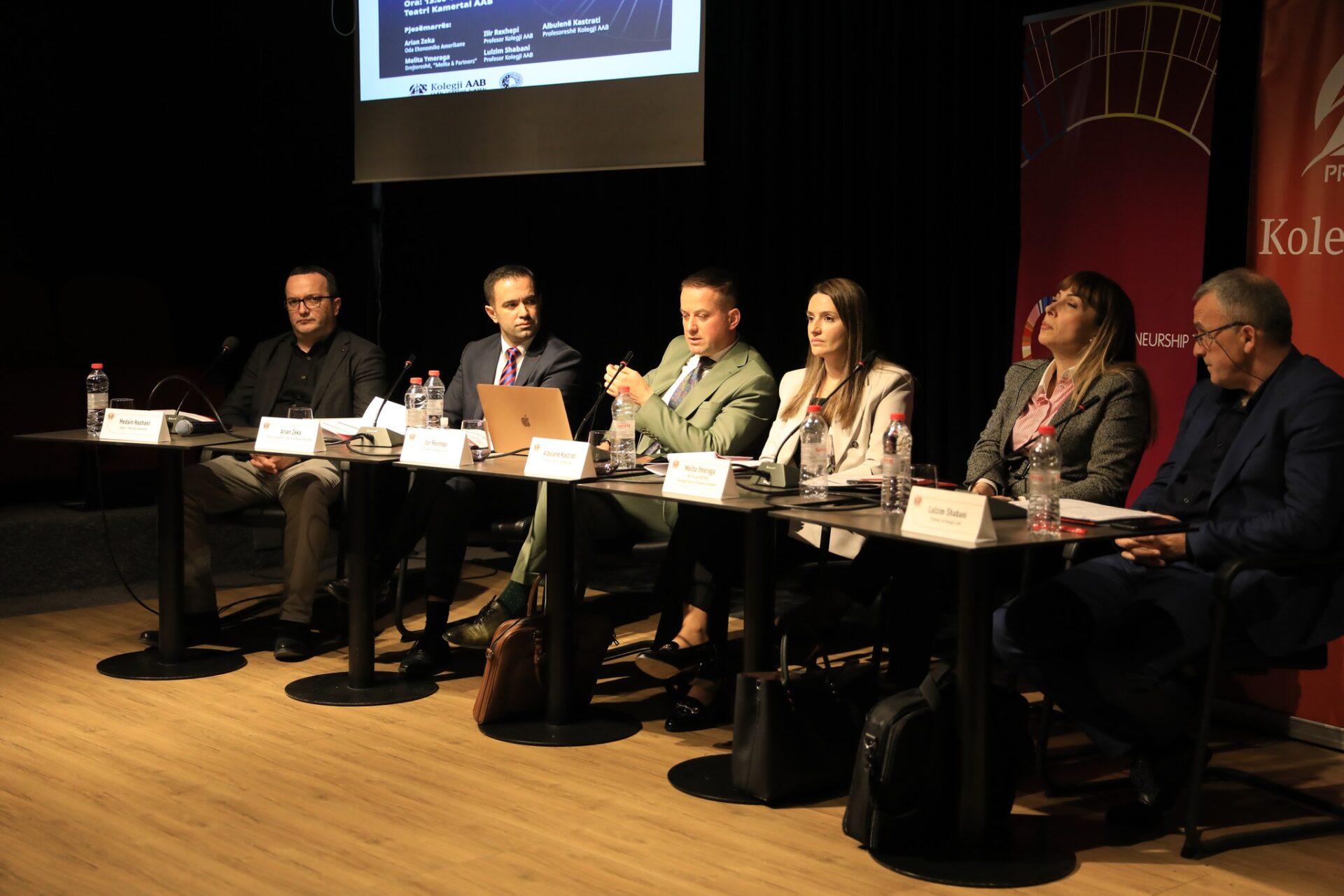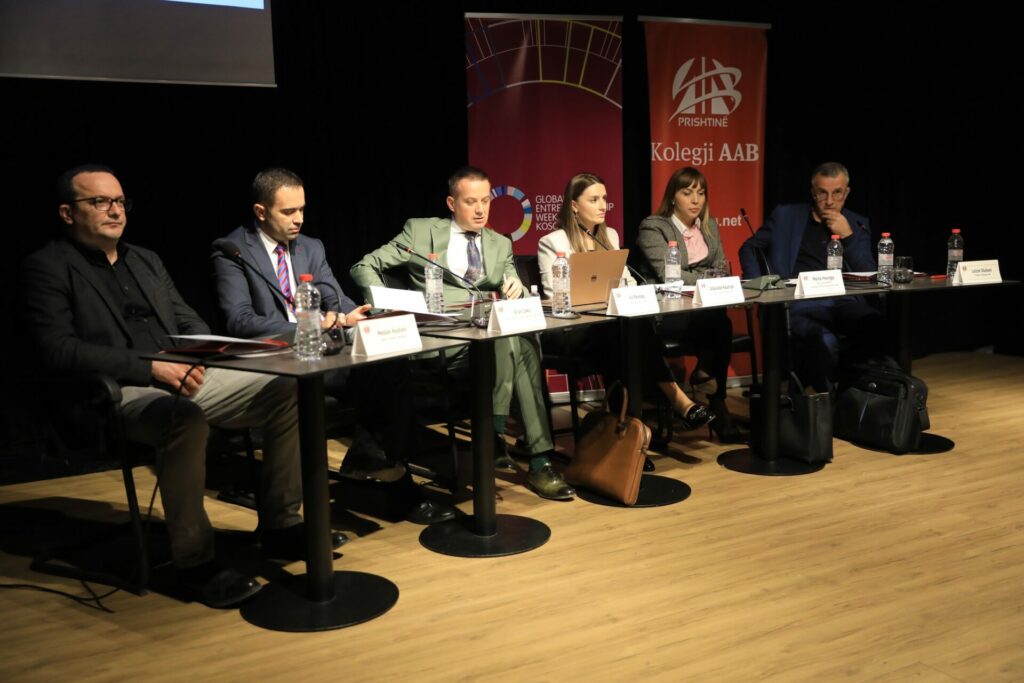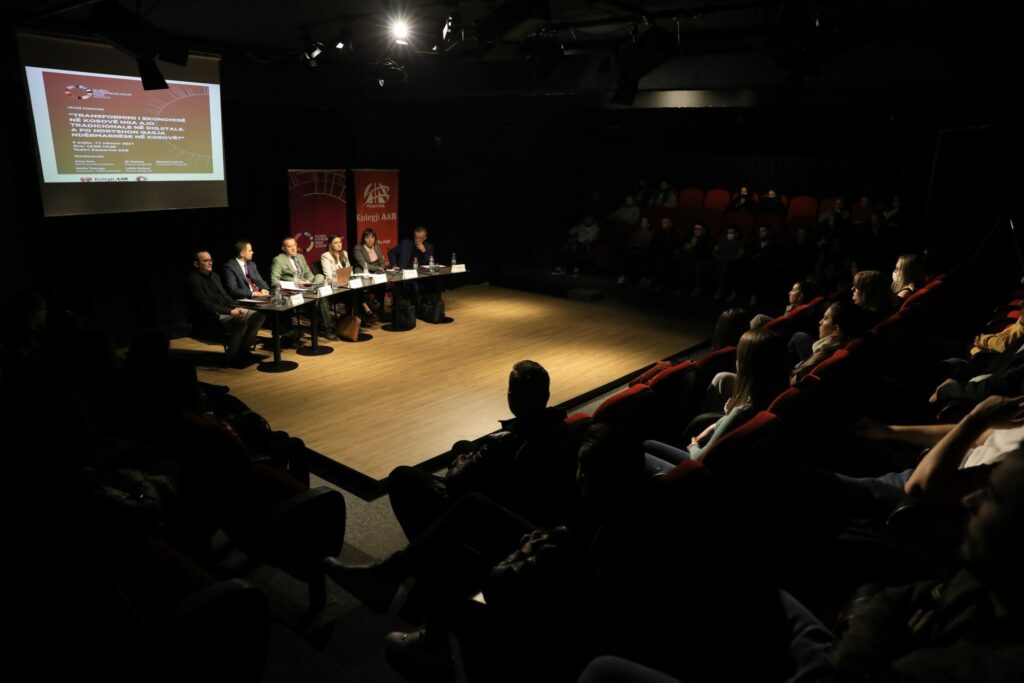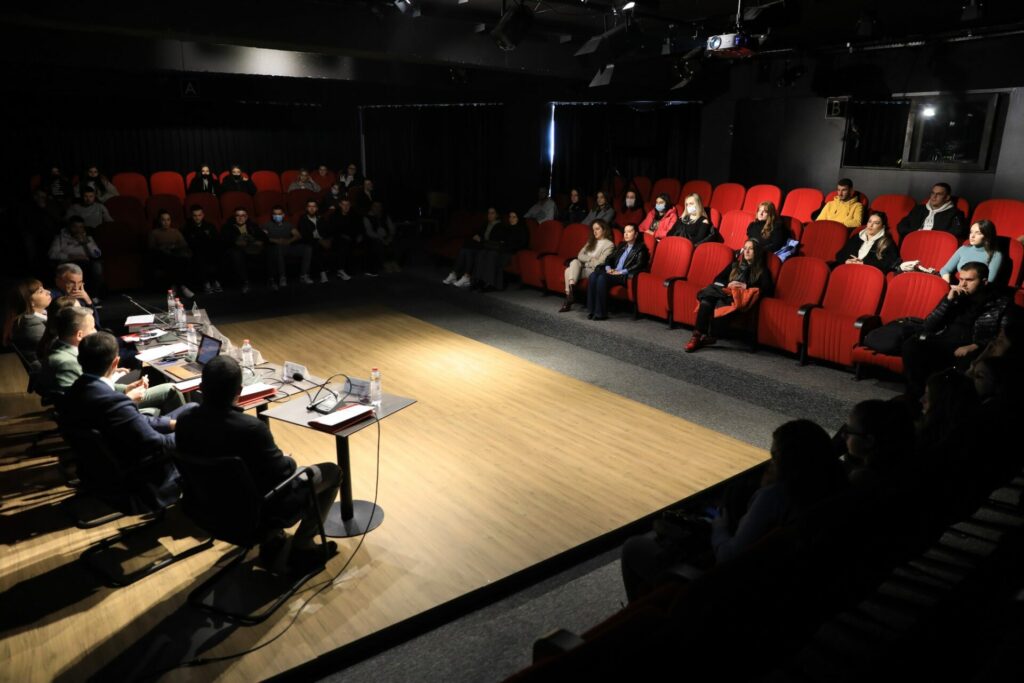





In order to address as comprehensively and structurally as possible a topic so current, especially in the last decade, AAB College in the framework of the traditional activity of Global Entrepreneurship Week #GEW2021 #gewkosovo2021, hosted a roundtable discussion where panelists and students debated on the topic “Transformation of the economy in Kosovo from the traditional to the digital. Is the entrepreneurial approach in Kosovo changing?!”.
Opening the discussion, Dean Medain Hashani said that digital transformation refers to the application of information technology and digital resources to turn these resources into new business models.
Arian ZEKA, Executive Director of the American Chamber of Commerce, stressed that digitalization, among other things, means a new world of opportunities. Permanent technological innovations and business globalization enable the creation of a new business infrastructure, which, with the intensive application of Information and Communication Technologies, directly affects the creation of new business models. Traditional businesses also need financial and human resources to transform them by applying innovative business models that are based on internet technologies, said Zeka.
Ilir Rexhepi, professor at the Faculty of Economics, said that in terms of digital transformation, Kosovo’s economy has significant differences depending on the nature of the field of activity, business size and the sector in which it operates.
Rexhepi stressed that the management of Kosovar companies, on which the burden of digitalization falls, invests more in digital solutions than in the sustainability and functional security of their selected digital platforms. He concluded by emphasizing that Kosovo’s economy is being transformed into a digital one, born out of a necessity to survive the current business climate, rather than as an innovative and objective business process strategically planned and well-supported institutionally.
Albulenë Kastrati, professor at AAB College, highlighted the challenges in Kosovo in the context of economic digitalization, such as the unfavorable climate for start-ups, both in terms of access to finance (non-financing by banks), and in terms of lack of technological skills for launching a business. As such, we get the digitalization of the economy based mainly on private initiatives such as ICK, Digital School, StarLabs. Kastrati also stressed the lack of a comprehensive state strategy for the digitalization of the entire economy and the lack of a strategy for orienting young people towards the skills required in the market and areas that bring employment prospects, such as studying in STEM fields.
Professor Lulzim Shabani addressed the process of digitalization of businesses from several perspectives. “New digital technologies inspire and promote the emergence of start-up companies, which with new business models create new industries and change existing ones. It is estimated that in the next ten years, 40% of companies will disappear from the market as a result of not changing or adapting to new digital trends.”
Melita Ymeraga, founder of “Melita & Partners” highlighted a very important aspect in the digitalization process, or more precisely the main barrier which hinders the process of digitalization of businesses in Kosovo – the lack of digital skills of the workforce – human resources.
At the end of the discussion, the panelists answered the questions of the participating students, which mainly had to do with the challenges of the digitalization process that Kosovar enterprises are going through.